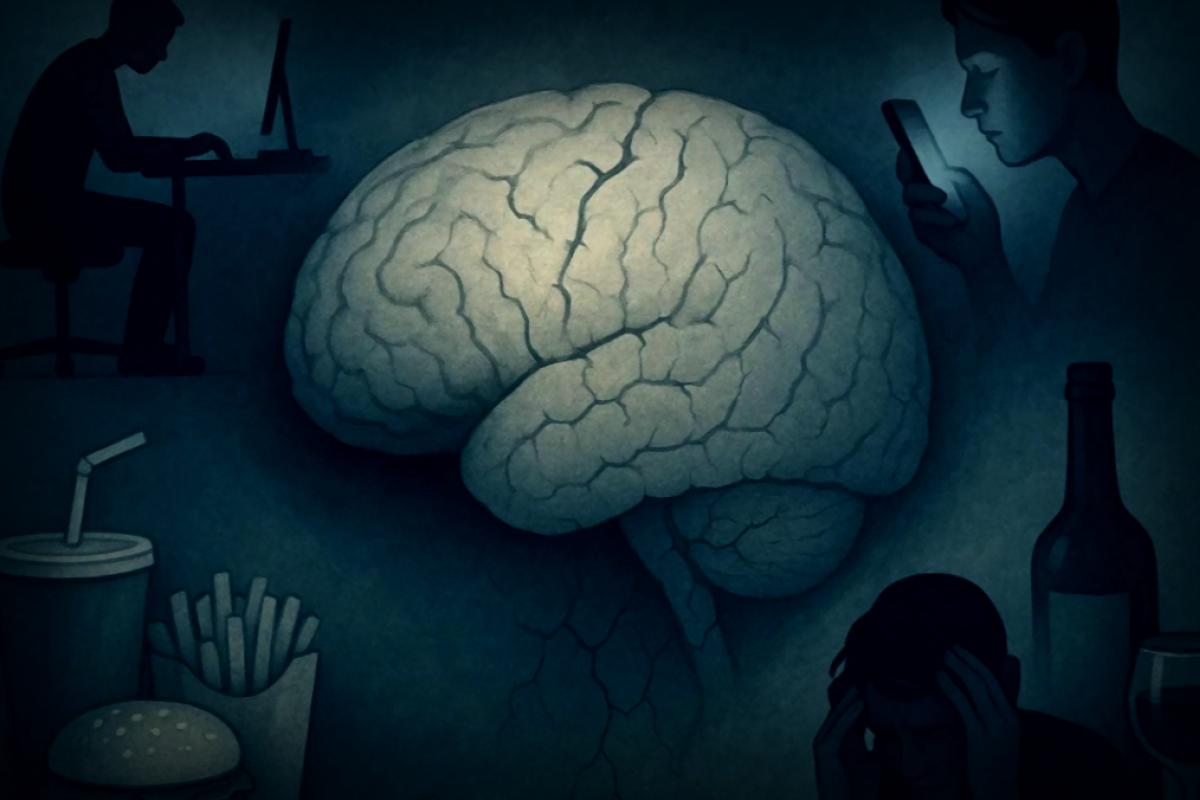For the longest time, the talk around Alzheimer’s focused heavily on genetics. People thought that if you had the wrong genes, you were destined for cognitive decline. But here’s the reality: while genes play a role, they don’t seal your fate. In fact, most Alzheimer’s cases later in life stem from a mix of factors: aging, the environment, certain medical conditions like hypertension or diabetes, and perhaps most importantly, the impact of lifestyle choices over the years.
It’s pretty eye-opening when you find out that seemingly normal habits can silently wreak havoc on your brain. The plus side? Unlike your genetic makeup, you hold the reins on these risk factors!
SEVEN DAILY HABITS THAT CAN DRAIN YOUR BRAIN
- Staying Put for Too Long: So, you’ve been sitting for hours? Not great! Long periods of inactivity not only harm your heart; they take a toll on your brain too. This sneaky problem creeps up over time. Make it a habit to move around! Scheduling a short walk or stretching every 30 minutes can work wonders. Even standing while on the phone helps!
- Social Withdrawal: Keeping yourself isolated is a bad move for your cognitive health. Studies suggest that less interaction equates to quicker memory decline. It’s not just lonely; it affects your mental sharpness. So, make time for your friends and family. Deep and honest conversations with loved ones can give your brain a solid boost.
- Poor Sleep Habits: Sleep isn’t just shut-eye; it’s when your brain cleans itself. If you’re constantly on the toss-and-turn plan, you’re messing with your mind’s ability to fend off harmful proteins, making Alzheimer’s more likely. Aim for seven- to eight-hour stretches of quality sleep. Keep a routine and ditch those screens an hour before bed!
- Chronic Stress: Stress, when it hangs around for long periods, raises those pesky hormones that add to inflammation—another significant risk. Finding ways to manage stress is crucial. Whether it’s practicing mindfulness, taking deep breaths, or getting regular exercise, keeping stress in check will benefit your brain in the long run.
- Bad Eating Choices: If your diet is full of junk, sugary foods, and saturated fats, you’re asking for trouble in terms of inflammation and cognitive decline. Consider adopting a Mediterranean-authentic menu filled with whole grains, leafy greens, lean proteins, and omega-3 fats. What’s good for your ticker is just as good for your noggin.
- Smoking and Heavy Drinking: Nicotine and high alcohol intake are like directly firing on brain cells. Smoking cuts blood flow to the brain fast, while too much booze causes cumulative damage. Kicking these habits or at least cutting back can greatly enhance your brain’s health outlook.
- Ignoring Vascular Issues: High blood pressure, uncontrolled diabetes, padding your cholesterol, obesity, and previous strokes all link up with higher dementia risk. If you can actively manage these conditions, you’re on the right track to reducing your Alzheimer’s risk and slowing down any progression.
WHEN SHOULD YOU SEE A DOCTOR?
Every now and then, forgetting where you put your keys is totally cool—it’s life! But if you’re noticing frequent lapses or it’s getting worse, hit up a doctor. Here are some things to watch out for:
- Trouble recognizing people or places you usually know.
- Repeating questions endlessly.
- Loss of sound judgment or decision-making.
- Having trouble finding the right words while speaking.
- Withdrawing from your usual activities or work.
Getting a medical evaluation when these signs pop up is crucial. The sooner you act, the better chance you have of slowing cognitive decline or tackling things you might be able to treat.
You can’t change your genes or turn back time, but you can take charge of your day-to-day choices. What you eat, how you move, rest, and connect are powerful tools that lie entirely in your hands. Over time, your lifestyle choices can significantly shape your brain’s future health.
By engaging in consistent and active management of these risk factors, you’re not just working toward keeping your brain astute. You’re also crafting a stronger base for a fulfilling life as you age, preserving your independence and dignity.
(An article from Dr. Darshan Doshi, Consultant in Neurology at P.D. Hinduja Hospital & Medical Research Centre in Mahim, Mumbai.)




















